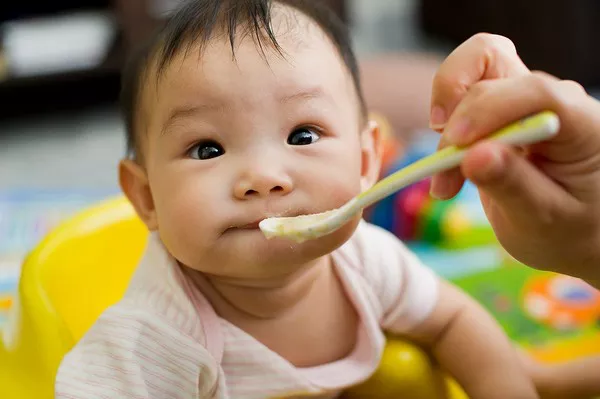The family unit is the cornerstone of society, and at its heart are parents who play pivotal roles in shaping the lives of their children. The responsibilities and functions of parents within the family structure are multifaceted and essential for the growth and development of their offspring. In this comprehensive guide, we will explore the various roles of parents in the family, shedding light on their importance and impact on the well-being of children and the family as a whole.
1. Nurturing and Emotional Support:
Parents provide a nurturing environment and emotional support that is crucial for a child’s psychological development and overall well-being. This role can be divided into several key aspects:
a. Unconditional Love and Affection:
Parents offer unwavering love and affection, creating a secure attachment that boosts a child’s self-esteem and emotional resilience.
b. Emotional Guidance:
They teach children how to manage their emotions, fostering emotional intelligence, and empathy.
c. Conflict Resolution:
Parents model healthy conflict resolution, teaching children how to handle disagreements constructively.
2. Providing for Basic Needs:
One of the fundamental roles of parents is to ensure that their children’s basic needs are met. This includes:
a. Physical Nurturing:
Parents are responsible for providing nutritious food, clean clothing, and a safe living environment.
b. Education:
They facilitate their child’s education, both formally through schooling and informally through life experiences.
c. Healthcare:
Parents prioritize their child’s health, ensu
3. Moral and Values Education:
Parents serve as the first teachers when it comes to imparting values and ethics. Their role includes:
a. Teaching Moral Values:
Parents instill a sense of right and wrong, helping their children develop a strong moral compass.
b. Passing on Cultural and Religious Beliefs:
They introduce their children to cultural traditions and religious practices, contributing to a sense of identity.
4. Role Modeling:
Parents are powerful role models for their children. This role comprises several essential elements:
a. Demonstrating Behavior:
Parents set an example by exhibiting desirable behaviors, which children often emulate.
b. Work Ethic:
They teach the importance of hard work, responsibility, and dedication by their own actions.
5. Providing Emotional Stability:
Parents play a vital role in creating a stable emotional environment. This involves:
a. Consistency:
Consistency in routines and expectations helps children feel secure and confident.
b. Communication:
Open and effective communication fosters trust and helps children express themselves.
6. Encouraging Independence:
Parents prepare their children for adulthood by encouraging independence through:
a. Encouraging Decision-Making:
Parents allow children to make age-appropriate choices, fostering self-confidence.
b. Problem-Solving Skills:
They teach problem-solving skills that will serve children throughout their lives.
Conclusion:
In conclusion, parents are the cornerstone of the family unit, playing diverse and critical roles in their children’s lives. From emotional support and guidance to providing for basic needs and moral education, the roles of parents are multifaceted and essential. Understanding these roles and striving to fulfill them to the best of one’s ability is crucial for nurturing well-rounded, responsible, and happy children. By recognizing the significance of their roles, parents can contribute to the harmonious development of their families and society as a whole.
FAQs about what are the roles of parents in the family
1. What are the primary roles of parents in a family?
Parents have several primary roles, including providing emotional support, meeting the basic needs of their children (food, clothing, shelter), imparting moral and values education, and serving as role models for behavior and work ethic.
2. How do parents provide emotional support to their children?
Parents provide emotional support by offering unconditional love and affection, guiding their children through emotional challenges, and modeling healthy ways to express and manage emotions.
3. What is the significance of parents as role models?
Parents serve as powerful role models for their children. Children often emulate their parents’ behavior, so it’s crucial for parents to exhibit positive traits and behaviors they want their children to adopt.
4. How do parents contribute to their child’s education?
Parents contribute to their child’s education by facilitating formal education through schooling and by providing informal education through daily life experiences. They also play a role in homework supervision and extracurricular activities.
5. Why is teaching moral values and ethics important for parents?
Teaching moral values and ethics is essential because it helps children develop a strong moral compass. It guides them in making ethical decisions and behaving responsibly.
6. What role do parents play in passing on cultural and religious beliefs?
Parents introduce their children to cultural traditions and religious practices, helping them develop a sense of identity and belonging within their cultural and religious communities.
7. How can parents promote independence in their children?
Parents promote independence by encouraging decision-making, allowing children to make age-appropriate choices, and teaching problem-solving skills. This helps children develop self-confidence and self-reliance.
8. What is the significance of consistency in parenting?
Consistency in routines and expectations provides children with a sense of security and confidence. It helps them know what to expect and how to behave in different situations.
9. How can parents foster open communication with their children?
Open communication is fostered by actively listening to children, being approachable, and creating a non-judgmental environment where children feel comfortable expressing their thoughts and feelings.
10. What are the long-term benefits of parents fulfilling their roles effectively?
Fulfilling their roles effectively can lead to well-rounded, responsible, and happy children who are better prepared for adulthood. It also contributes to the overall harmony and stability of the family unit.


